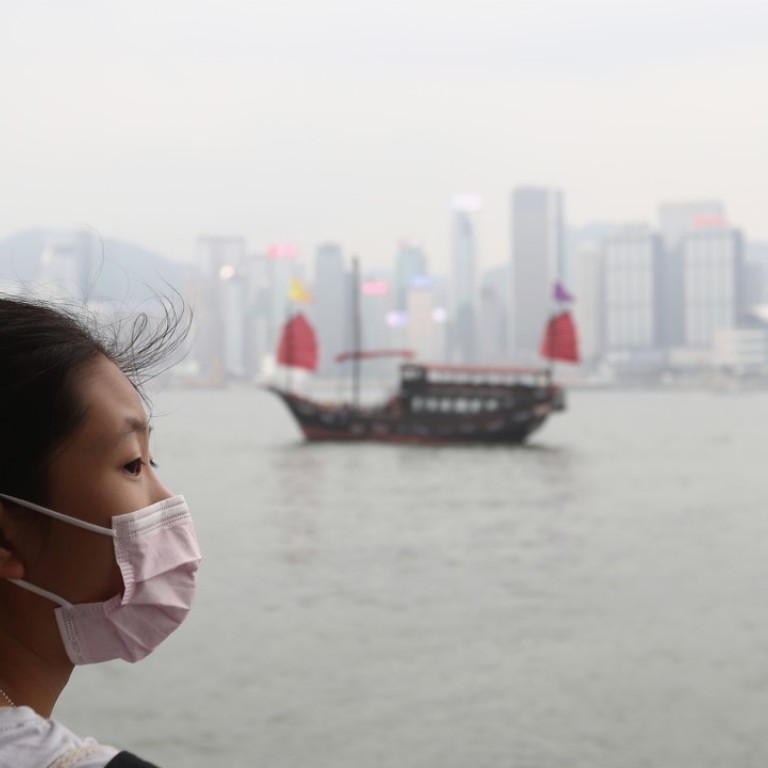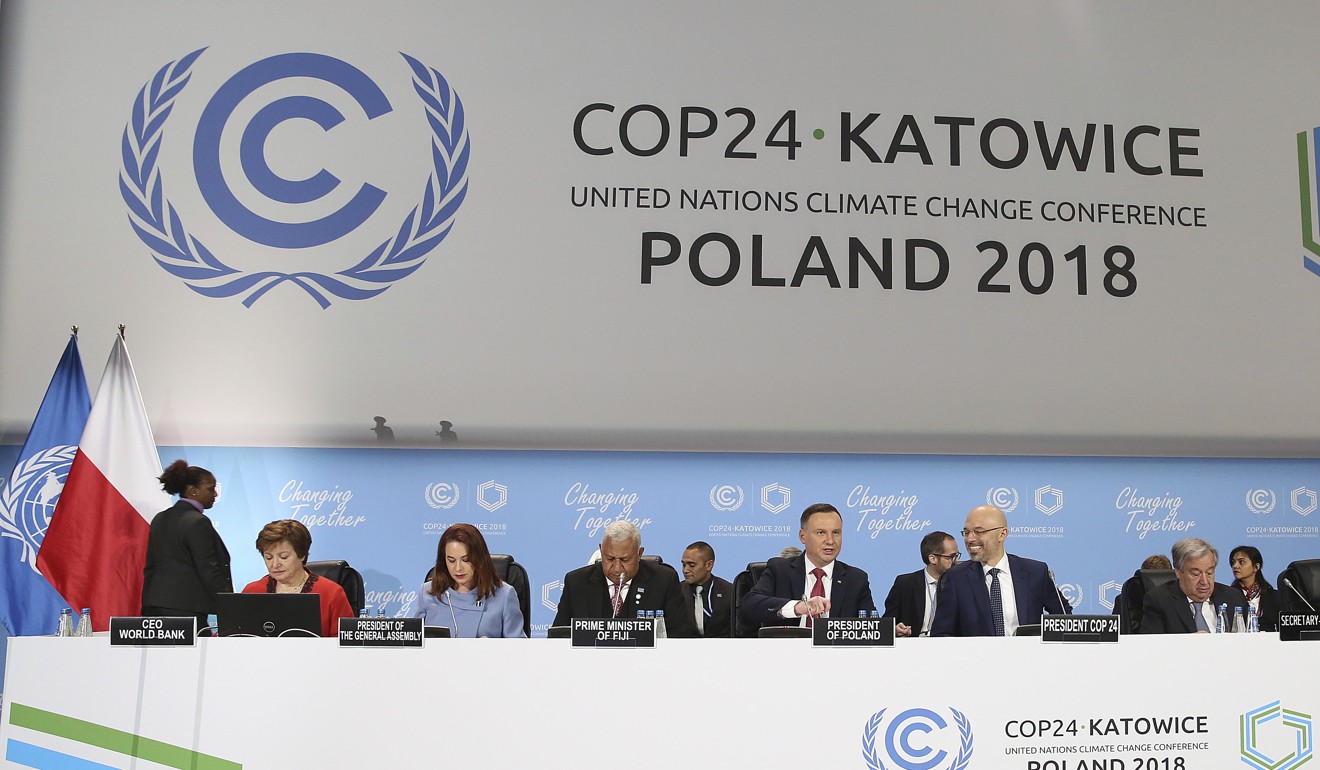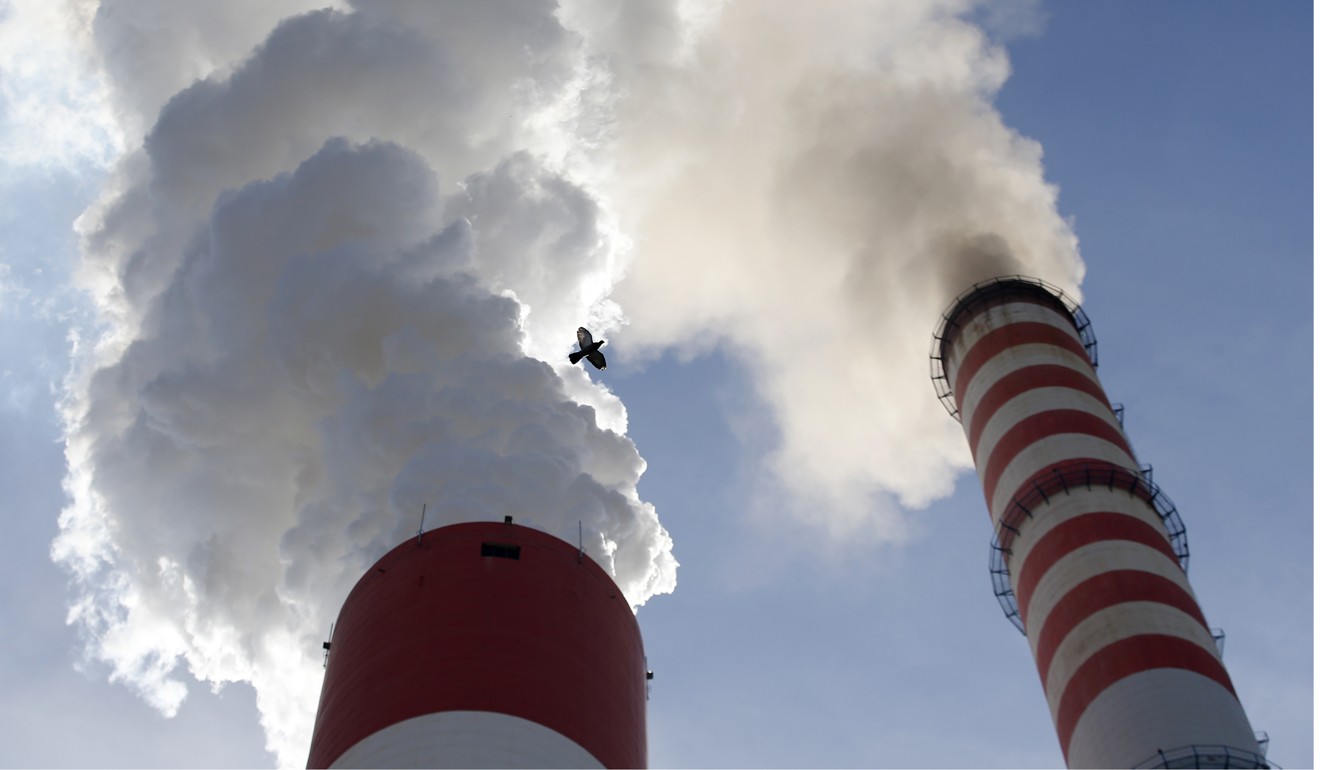
Hong Kong lacking in leadership to deal with climate change, report warns, with no dedicated authority to tackle issue, unlike Singapore, Seoul and Tokyo
- Paris Watch report says city lacks a designated body to lead climate change policies beyond just environmental protection
Hong Kong lacks a dedicated climate change authority to spearhead and keep the subject high on the policy agenda, leading to a “dilution of leadership” despite the formation of a high-level steering committee two years ago, according to a new report.
The Paris Watch – Hong Kong Climate Action Report, published by NGO CarbonCare InnoLab at a United Nations conference in Poland on Thursday, said the city lacked a designated body to lead climate change policies beyond just environmental protection.
“Hong Kong has no dedicated climate authority, unlike Singapore, Seoul and Tokyo,” the report by the Hong Kong-based NGO read.
“Uncertainty as to who in government owns the climate change agenda leads to a dilution of leadership on climate action, which needs to involve a broad socio-economic realignment beyond just environmental protection.”

It said the lack of a climate “champion” and corresponding deployment of resources led to the conclusion that this area of policy was not given sufficient importance.
The Environment Bureau – which also steers policies for waste, energy and conservation among others roles – took on the biggest policymaking role, but it alone lacked the wherewithal to spur “rapid and far-reaching transitions in energy, land, urban and infrastructure including transport and buildings, and industrial systems” needed to thwart runaway global warming.
The latest special report by the UN-backed Intergovernmental Panel on Climate Change (IPCC) in October drew attention to the need for such transitions, highlighting the pathways and effects of keeping the global temperature rise below 1.5 degrees Celsius.
Global carbon emissions reached a record high in 2018
The Paris Watch report also raised questions over the role – and transparency – of Hong Kong’s Steering Committee on Climate Change, a body chaired by the city’s chief secretary and set up in 2016.
Officials from 13 policy bureaus and three departments are on the committee – set up to steer direction, coordinate efforts and enhance public awareness on climate change – though others may attend meetings on an ad hoc basis, according to the government.

But since a press announcement was released of its first meeting in April 2016, the group identified no other information on its activity. The committee has no dedicated website and details of meeting agendas or minutes cannot be found in the public domain.
Updates do occasionally surface. For instance, responding to lawmaker queries on Wednesday, the bureau said the committee had discussed Central Policy Unit proposals on carbon trading and agreed that Hong Kong was “not yet in a position to establish its own carbon trading market at this stage”.
The unit – recently restructured as the Policy Innovation and Coordination Office – published a study last June to look into whether the city could develop its own carbon trading market and, if so, what role it could can play in the national one.
Paris Watch said the city fell short in achieving its fair share of emissions reductions to help realise the 2015 Paris climate agreement, which stressed the need to limit the rise in average global temperatures to 2 degrees, while “pursuing efforts” to hold it at 1.5 degrees.
Nearly 200 countries scrambled to draft a “rule book” on implementing the landmark 2015 Paris climate agreement at a two-week UN conference in Katowice, Poland this month.
The government’s emissions reduction target for 2030 was 3.3 tonnes to 3.8 tonnes per capita but that would exceed the C40 Cities Climate Leadership Group’s recommended level of two tonnes per capita for a city with this economic output, the report said.
“Hong Kong’s 2030 target … would exceed the C40 Cities pathway by some 78 per cent,” the report noted.

The C40 group, of which Hong Kong is a member, is a London-based network of megacities taking action to address climate change.
“Everything we have heard here from scientists and politicians [in Katowice] just confirms the message that Hong Kong must plan to rapidly raise its ambition levels on greenhouse gas emission reductions,” said John Sayer, CarbonCare research director.
Meanwhile, lawmaker Martin Liao Cheung-kong moved a motion at the Legislative Council urging the government to be more proactive in alleviating and coping with climate change and to lead the city into a green and low-carbon society and economy.
Forget the trade war: China and US should work together on climate change
Secretary for the Environment Wong Kam-sing said the government would come up with a long-term decarbonisation strategy for up to 2050 by 2020.
Another advisory body, the Council for Sustainable Development, has been commissioned to conduct a public engagement early next year and will be tasked with identifying a specific carbon reduction target, while taking into account scientific developments such as the IPCC’s latest special report.
Hong Kong’s total greenhouse gas emissions were reduced by about 5 per cent to 41,900 kilotonnes from 44,300 kilotonnes from 2013 to 2016, mainly attributable to a reduction in electricity generation by power plants and more use of natural gas in place of coal.
The government expects emissions to peak before 2020 as more coal-fired plants are retired.

